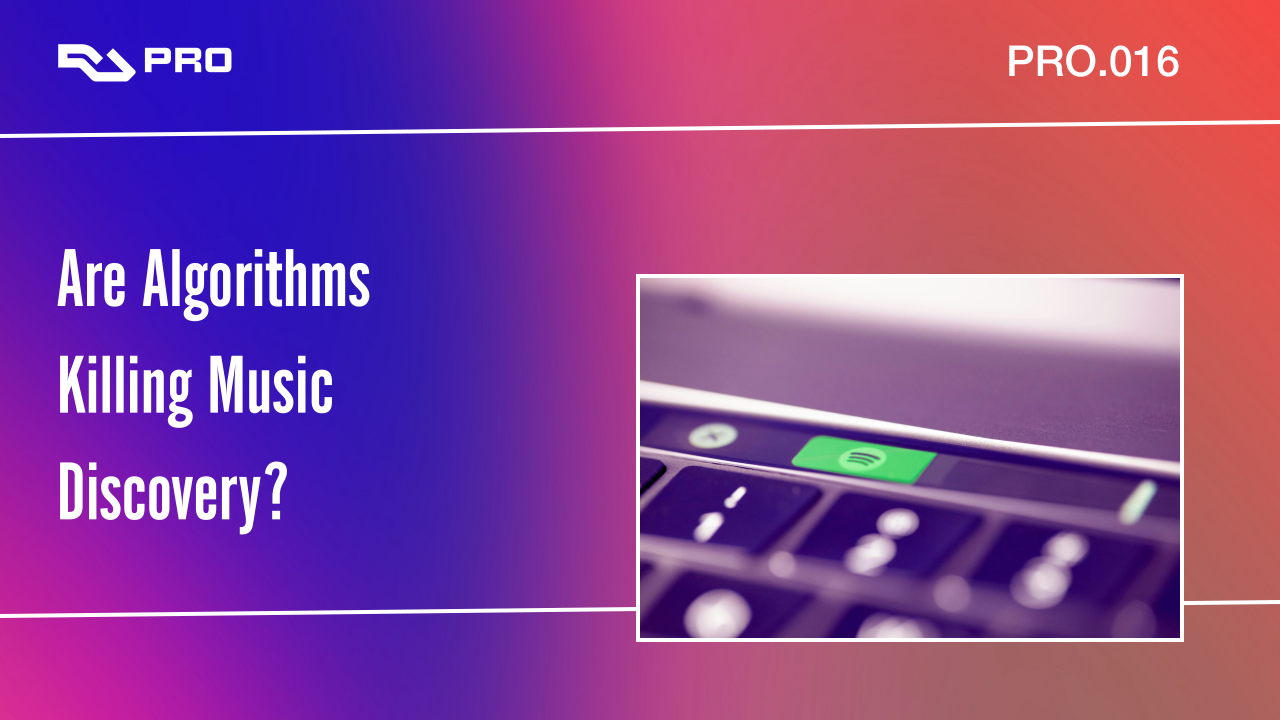Published
Mon, Feb 12, 2024, 09:00
- Our latest industry-focussed missive examines how streaming has shaped music and our tastes.

Welcome to the RA Pro Newsletter: a bite-sized look at the trends and themes impacting businesses in the electronic music industry. Sign up to the full newsletter to get early access to each release and read all archived editions.
In his new book, The New Yorker staff writer Kyle Chayka outlines why he thinks algorithms are ruining a person's ability to develop unique taste. Mathematically determined recommendations on social media, streaming and other platforms are deciding what music, food, art and entertainment becomes popular, he explains. The algorithm promotes the widest possible average, "informing the songs we listen to, the friends with whom we stay in touch," he writes, warning that culture is getting homogenised as a result.
This topic is keenly discussed in the music industry, where Spotify playlist placements can catapult artists' careers. Label heads and talent agencies often criticise machine-driven curation, lamenting how major streaming platforms (DSPs) handle music discovery. Many say it's getting harder to break new acts because algorithmic-driven feeds and suggestions prioritise what Chayka calls "scalable content"—"the stuff that avoids alienating people, keeps you engaged as much as possible, even if that engagement is very shallow." According to that argument, it's more difficult for listeners to find new, niche artists.
It's no secret that the streaming economy has drastically impacted music creation and discovery. New pop and hip-hop songs are getting shorter and shorter to compete for listener engagement. The bridge—the bit between the verse and chorus—is also disappearing in favour of snappy intros and earlier choruses to hold your attention.
But while streaming and social media have certainly impacted what content is produced and consumed, underground sounds will still thrive on other platforms. Leftfield or experimental scenes are, by nature, resilient both online and offline, whether it's at DIY parties or on the internet's dusty fringes. As DJ Harvey recently told SSENSE, dance music culture has long bloomed outside of the mainstream. "I'm sure somewhere, there's a scene that's peaking right now that we know nothing about … By the time we find out about it, it'll be over, and we'll have to buy a commercialised, homogenised, hormone-infested version of it."
Perspectives on the ground
Dominic Flanagan, cofounder of the beloved UK label LuckyMe, believes social media and streaming popularity have been grossly overvalued. Speaking to Resident Advisor, the music industry veteran, who is also head of A&R at Warp Records, described why these platforms shouldn't be a barometer for good music.
Monoculture is stronger than ever, he noted, pointing to how people across the world are consuming the same narratives and aesthetics being pushed across mainstream media. "That's not where I listen to music or look for music–I go to gigs, I listen to radio and I talk to my friends," he said. "Subculture is just nowhere near the stuff we're being shown."
"I don’t know about anyone else but I see consensus media as the thing to avoid when looking for new artists," he noted. "If something runs in those tabs and those conversations, I naturally discount that and assume there’s something better happening elsewhere."
"I would suggest good musicians get used to not having insane traction on the internet and we all stop conflating that with success or merit," he continued. "We break new artists through media and radio, through concerts, through independent distribution across the world. I don't think socials or DSPs are the kingmakers."
In case you missed it: important industry news
• Inside the Music Industry's High-Stakes A.I. Experiments
• Their Songs Were Stolen by Phantom Artists. They Couldn't Get Them Back.
• The Music Industry Was Slightly Less of a Sausage Fest Last Year: Report
• Music streaming platforms must pay artists more, says EU

